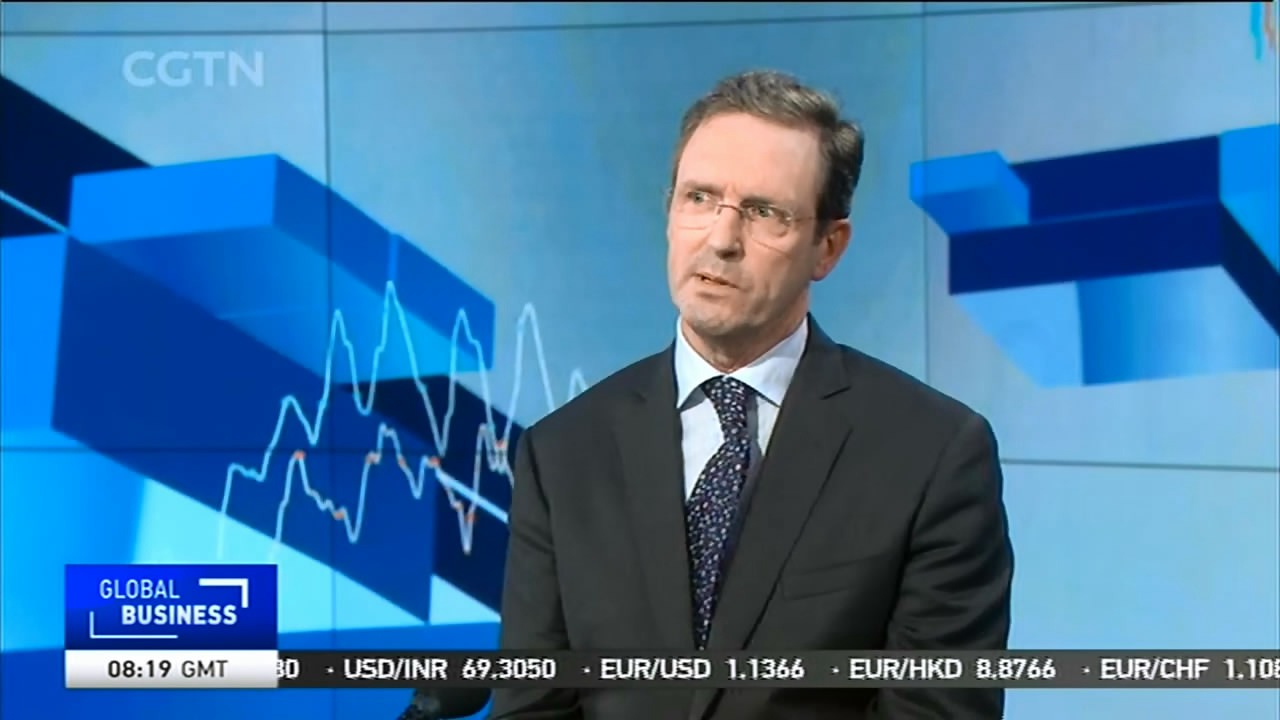

Opening-up of the financial sector is a long-term mission for China, and should not be interrupted by any short-term external fluctuation, according to Simon Gleave, regional head of Financial Services for KPMG Asia Pacific.
"I think liberalizing the financial sector is a long-term mission for China. We have to open the capital market, it's a long-term plan. That's not something we should just delay because we are having a discussion with the U.S.," Gleave said.
He considered China's open mind for business as a significant signal, adding: "China is trading normally with the rest of the world. That's the trade basis."
Based on his observation, China-U.S. trade frictions have affected the financial sector, but that impact was limited. And Gleave is concerning more about China's transition toward a consumption-driven economy, saying: "In the process of moving to consumption economy, there are lots of things that need to change."

Simon Gleave, regional head of Financial Services for KPMG Asia Pacific. /CGTN Photo
China has quickened the pace of opening up the financial market in the first half of this year. In May, the government issued 12 new rules, including lifting equity caps in Chinese commercial banks for both domestic and overseas banks.
Meanwhile, chairman of China Securities Regulatory Commission (CSRC) Yi Huiman in June announced nine more measures to open up China's capital market. For example, overseas shareholders of joint brokerages will be treated the same way as their Chinese counterparts.
Gleave thought that allowing foreign banks a controlling stake in securities joint ventures in the first half of 2019 was a key step of China's pledge to ease ownership curbs in the financial sector.
"This is the most important step for the security sector and the insurance sector," Gleave said, adding that KPMG's foreign clients are looking at the next step, "which is they would like to have 100 percent in security sector within three years."
"So I think we may see more activities coming over the next three years as people apply for full license to set up security joint ventures," the expert said.

Copyright © 2018 CGTN. Beijing ICP prepared NO.16065310-3
Copyright © 2018 CGTN. Beijing ICP prepared NO.16065310-3